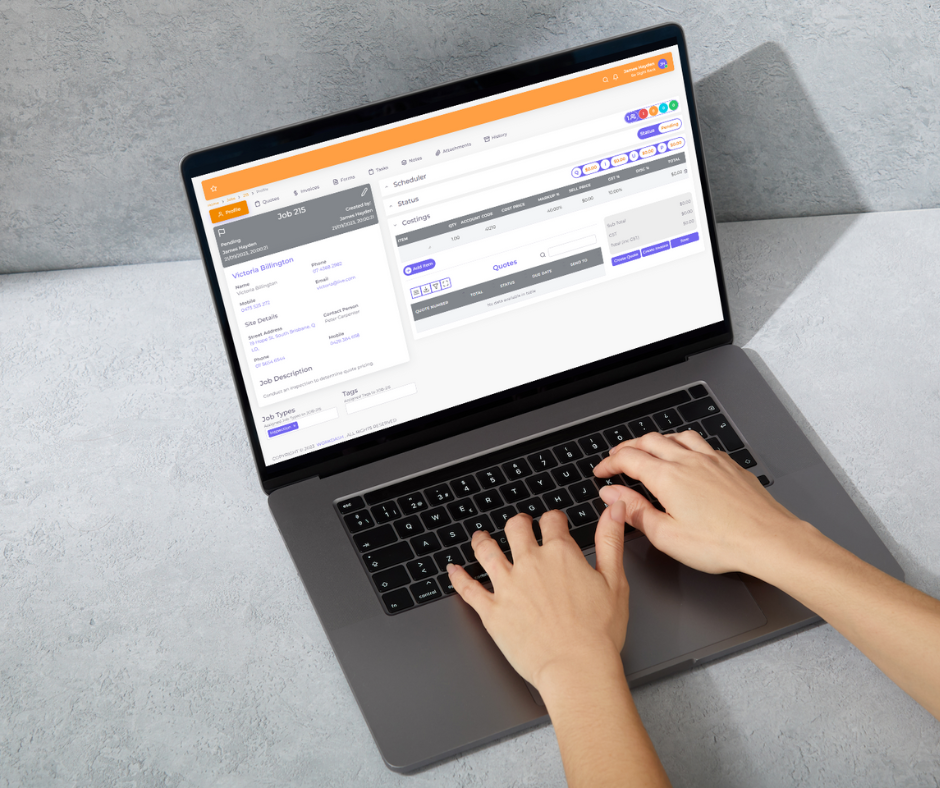Table of Contents
Remote work has evolved from a niche trend to a vital mode of operation for businesses worldwide. Its rise, spurred by technological advancements and recent global events like the pandemic, underscores its staying power.
Yet, successfully managing remote teams requires more than adapting traditional office strategies. This article explores the dynamics, challenges, and solutions for effectively managing remote teams, offering actionable insights and best practices for remote managers aiming to foster productivity, collaboration, and employee satisfaction.
Understanding the Dynamics of Remote Teams
Remote teams, by definition, consist of professionals working from various locations. This flexibility redefines conventional work structures, introducing both opportunities and complexities.
Characteristics of Remote Teams
Remote teams operate across distributed locations, leveraging flexible schedules that empower employees to manage their time effectively. This approach often leads to higher job satisfaction and access to a global talent pool.
Key Differences Between Remote and In-Office Teams
Unlike traditional office environments, remote management lacks spontaneous face-to-face interactions, requiring intentional communication efforts. Additionally, managing a remote team demands proficiency with digital tools to oversee workflows, maintain transparency, and ensure accountability.
Building Trust and Accountability
Trust is the bedrock of any successful remote team. Without trust, managers struggle to foster autonomy or motivate team members. Effective remote leadership hinges on clear communication, transparency in expectations, and consistency in recognising accomplishments.
Common Challenges in Managing Remote Teams
While remote work offers unique advantages, it comes with its own set of challenges that can hinder productivity and engagement.
Communication Gaps
The absence of in-person communication often leads to misunderstandings. Over-reliance on written communication can fail to convey tone and intent, while asynchronous methods, such as emails, risk delaying decisions.
Collaboration Difficulties
Remote teams operating across different time zones often face delays in coordination. Furthermore, limited opportunities for impromptu brainstorming hinder innovation, and without adequate tools, workflows can become fragmented.
Employee Engagement and Morale
Feelings of isolation are common among remote workers, leading to disengagement. The absence of casual office interactions makes building camaraderie challenging, and remote employees may feel overlooked when recognition is scarce.
Productivity and Accountability
Tracking performance in a remote setting can be daunting. Team members may struggle with home-based distractions or adopt inconsistent work habits, leading to dips in overall productivity.
Technology and Security Issues
Remote work depends heavily on reliable technology. However, inconsistent internet access, lack of essential tools, and cybersecurity threats can undermine productivity and compromise sensitive data.
Solutions to Overcome Remote Team Challenges
Effective management strategies can turn the challenges of managing remote teams into opportunities for innovation, growth, and improved team cohesion. By adopting the right practices, remote managers can create an environment where their remote workers feel supported, engaged, and motivated, regardless of location.
Enhancing Communication
One of the primary challenges remote managers face is ensuring effective communication. To bridge communication gaps, it’s essential to integrate communication tools that facilitate face-to-face interaction. Regular check-ins, combined with a balanced mix of synchronous (real-time) and asynchronous communication channels, can ensure clarity and consistency.
Establishing clear communication protocols helps remote workers stay aligned on expectations, key tasks, and project deadlines. By setting up regular team meetings, managers can provide a consistent platform for discussion, while offering flexibility in working hours to accommodate different time zones.
These communication strategies promote transparency and help remote team members feel more connected to the company culture, even when working from home.
Facilitating Collaboration
Collaboration is the cornerstone of successful remote teams. With the right project management tools, collaboration becomes more seamless and efficient. Platforms like Trello, Asana, and Google Workspace streamline project management and facilitate real-time collaboration, allowing remote employees to work together despite geographical barriers.
Managers should encourage shared goals and collaborative team projects, ensuring that team members are working towards a common objective.
Tools like WorkDash can further enhance this by helping to manage tasks, monitor progress, and keep everyone on the same page. In remote teams, it’s vital to be mindful of time zone disparities, so accommodating flexible schedules can significantly improve collaboration. Encouraging team members to communicate openly and work in tandem helps to foster a culture of innovation and productivity.
Boosting Engagement and Morale
Keeping remote workers engaged can be a challenge, particularly in environments where team members rarely meet face-to-face. Virtual team-building activities, such as online trivia or themed celebrations, can go a long way in promoting team spirit and helping remote employees feel part of a cohesive unit.
Additionally, providing consistent feedback and recognising achievements boosts morale and reinforces a culture of appreciation. Managers should also focus on cultivating a supportive work culture, where team members feel valued and their contributions are acknowledged.
Emotional support plays a crucial role in remote management, as it helps prevent burnout and promotes sustained engagement. By investing in the wellbeing of remote workers, you’ll foster a team environment where everyone feels motivated to work effectively and contribute to shared goals.
Maintaining Productivity and Accountability
Setting clear expectations and focusing on outcomes, rather than micromanaging, is key to maintaining productivity in remote teams. It’s essential to define deliverables upfront, which ensures that remote employees know exactly what is expected of them.
There are tools that can be used to track progress without creating unnecessary pressure. These tools help managers monitor performance while allowing team members the autonomy to manage their own time and tasks.
A well-defined management style that encourages self-management not only enhances productivity but also builds trust within the team. Empowering remote employees to take ownership of their work ensures they stay motivated, productive, and aligned with the team’s goals.
Addressing Technology and Security Needs
The technical needs of remote teams are crucial to their success. Ensuring that employees have access to the necessary infrastructure, such as laptops, secure internet connections, and software tools, can reduce technical disruptions and keep operations running smoothly.
Managers should consider offering reimbursements for high-speed internet or providing equipment to support remote work. Security is another important aspect of managing remote teams.
Cybersecurity training and tools like VPNs can help protect sensitive company data, ensuring that remote work remains secure. With many remote workers accessing corporate systems from different locations, data protection is a top priority. A secure environment ensures that remote employees can work safely, without compromising the security of the company or its clients.
Manage Remote Teams through the Help of Job Management Tools like WorkDash
Job management software like WorkDash can significantly enhance the management of remote teams by providing a centralised platform for tracking tasks, monitoring progress, and ensuring clear communication.
With features like real-time updates, time tracking, and task assignment, businesses can maintain productivity and streamline operations, regardless of team location. This enables managers to stay connected with their teams, assign and prioritise tasks efficiently, and ensure that everyone is aligned on project goals, leading to better collaboration and timely project completion.
By incorporating these solutions into your remote management strategy, you’ll be well-equipped to manage remote teams effectively. These best practices not only address common challenges but also provide opportunities for growth, collaboration, and innovation, ultimately driving your team towards greater success.
Whether you’re managing a few remote employees or overseeing global teams, these tips for managing remote teams will help ensure that everyone is on the same page, working towards shared goals, and staying motivated in a flexible, dynamic environment.
Best Practices for Managing Remote Teams
Managing remote teams presents unique challenges that require adaptability, clear communication, and a focus on outcomes. The best remote managers are those who continuously evolve their strategies to address these challenges while keeping their teams motivated, engaged, and aligned with organisational goals.
Emphasising Trust and Autonomy
Micromanagement can often stifle creativity and reduce employee morale. Instead, great remote managers trust their team members to take ownership of their tasks and encourage them to be proactive in their roles.
By providing the right tools and resources, such as job management tools like WorkDash, managers can empower their remote teams to track progress, collaborate efficiently, and make decisions independently. These tools offer features like task assignment, time tracking, and real-time updates, allowing managers to stay informed without hovering over their team members. This fosters a culture of trust, where employees feel valued and motivated to perform at their best.
Regular Evaluation and Adaptation
Regular evaluation of strategies and performance through feedback sessions is essential for ensuring continuous improvement in remote teams. Using job management software like WorkDash, managers can track individual and team performance in real-time, quickly identifying areas of improvement.
With insights into task completion rates, time management, and productivity, managers can make data-driven decisions and adapt their approach accordingly. Staying adaptable allows managers to address potential roadblocks proactively and ensure that the team stays on track to meet deadlines and project goals.
Promoting Inclusivity
Inclusivity is key to building a strong and cohesive remote team culture. Ensuring that all remote employees feel heard and valued strengthens communication and collaboration across diverse team members.
Managers can create an inclusive environment by hosting virtual events, open forums, and celebrations of diverse perspectives. Job management tools like WorkDash can also help in fostering inclusivity by providing a centralised platform where every team member can contribute ideas, share feedback, and stay updated on project developments. This promotes transparency and ensures that all voices are heard, enriching the remote work experience and enhancing team morale.
It is important for managers to lead by example particularly when there is a lack of face-to-face meetings with your employees. It is important to understand that workers can feel isolated working in a remote environment
By embracing these best practices and leveraging the right tools, managers can effectively lead remote teams to success, ensuring high productivity, strong collaboration, and a positive, inclusive work culture.
Conclusion
Managing a remote team requires communication, collaboration, engagement, and productivity.
It is a journey filled with unique challenges and rewarding opportunities. By addressing issues with practical solutions, businesses can create thriving, dynamic teams. Proactive leadership, combined with the right tools and strategies, enables companies to harness the full potential of remote work.





